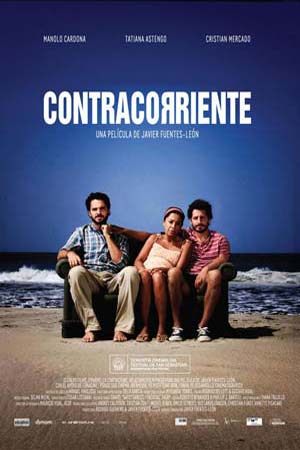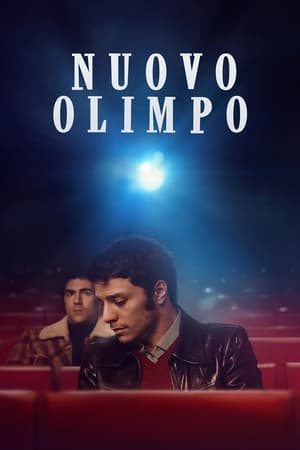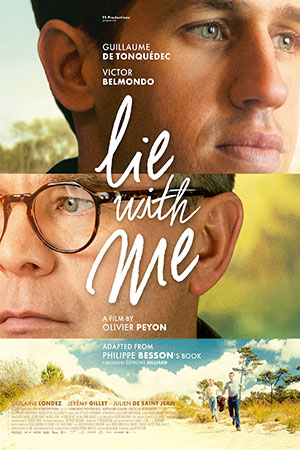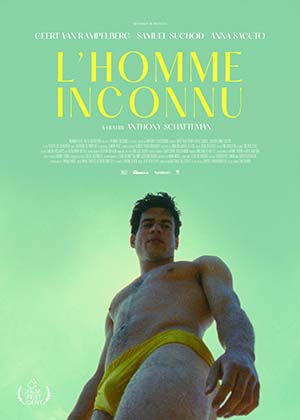Javier Fuentes-León’s Undertow, or Contracorriente, is a hauntingly beautiful Peruvian film that tells the story of a love forbidden by tradition, set in a small coastal village. The movie delves deeply into themes of secrecy, identity, and acceptance, made all the more poignant by its supernatural elements and stirring performances.
Setting and Cinematic Style in Undertow (Contracorriente)

Set against the rugged, breathtaking landscapes of the Peruvian coast, Undertow uses its environment to reflect the inner turmoil of its characters. The picturesque fishing village, with its deeply entrenched traditions, becomes both a beautiful haven and a prison for those who don’t conform. Javier Fuentes-León masterfully uses the isolation of this location to mirror Miguel’s internal conflict, and the cinematography amplifies the film’s emotional impact.
“The village is as much a character as Miguel or Santiago—its beauty conceals the unyielding judgment of a world resistant to change.”
 At the heart of Undertow is Miguel (Cristian Mercado), a respected fisherman and soon-to-be father who is in love with Santiago (Manolo Cardona), an artist and outsider. The story unfolds with Miguel hiding his relationship from his wife Mariela and his community, fearing the consequences of being openly gay in a conservative society. Santiago, on the other hand, is open about who he is, yet understands the constraints that bind Miguel.
At the heart of Undertow is Miguel (Cristian Mercado), a respected fisherman and soon-to-be father who is in love with Santiago (Manolo Cardona), an artist and outsider. The story unfolds with Miguel hiding his relationship from his wife Mariela and his community, fearing the consequences of being openly gay in a conservative society. Santiago, on the other hand, is open about who he is, yet understands the constraints that bind Miguel.
When Santiago dies unexpectedly, his ghost begins to appear to Miguel, unable to rest until Miguel publicly acknowledges their relationship. This spectral presence serves as a poignant reminder of the invisible bonds that tie them, forcing Miguel to confront his love, loss, and the courage it takes to be true to oneself.
“Santiago’s ghost becomes a powerful metaphor for the hidden aspects of ourselves that persist, even when denied. It urges Miguel to finally live truthfully—if only for the sake of love.”
Cristian Mercado and Manolo Cardona’s Great Performances in Undertow (Contracorriente)
Cristian Mercado’s portrayal of Miguel is layered and heartfelt, showing his inner conflict as he grapples with his desire for Santiago and his duty to his family and society. Mercado conveys Miguel’s vulnerabilities and strengths in equal measure, making him a deeply relatable character.
Manolo Cardona’s Santiago, on the other hand, is the free spirit Miguel longs to emulate but fears to become. Cardona plays Santiago with a mix of passion and sadness, bringing warmth and intensity to a character who loves Miguel unconditionally, even as he faces rejection.
“Mercado and Cardona share an intense, quiet chemistry that speaks volumes, showing the pain and beauty of love that cannot speak its name.”
Supernatural Themes and Symbolism
The supernatural element in Undertow elevates the story beyond a simple forbidden romance, giving it a haunting and poetic quality. Santiago’s ghostly presence is a powerful symbol of Miguel’s hidden identity and his emotional journey towards acceptance. It embodies the cost of living a divided life, where love is buried beneath fear and shame.
“The ghost of Santiago represents more than memory; it’s the echo of a love too strong to fade, urging Miguel to confront what he has hidden and to honor the truth of who he is.”
Undertow is a powerful, emotional exploration of love, loss, and courage. It shows the devastating impact of repression and the liberating power of self-acceptance. Fuentes-León’s direction, coupled with strong performances from Mercado and Cardona, creates a narrative that resonates beyond cultural and geographical boundaries. The film’s resolution is bittersweet, emphasizing both the beauty and the tragedy of love that cannot be freely lived.
“In the end, Undertow is not just a story about love between two men; it’s a story about the journey to self-acceptance, and the price one pays to live a life true to oneself.”
This film is a must-watch for those who appreciate nuanced storytelling and films that tackle LGBTQ+ themes with sensitivity and depth.
























